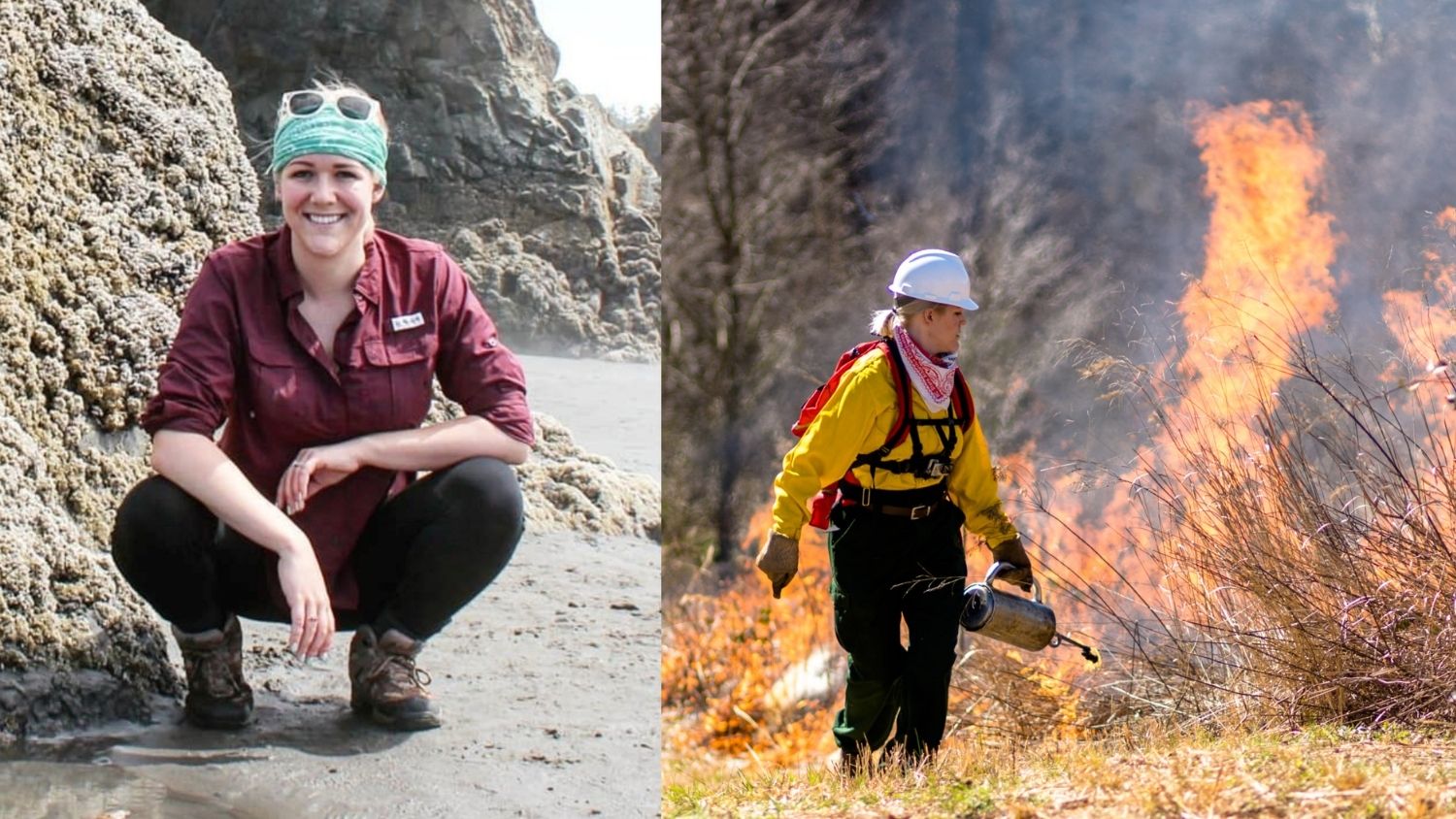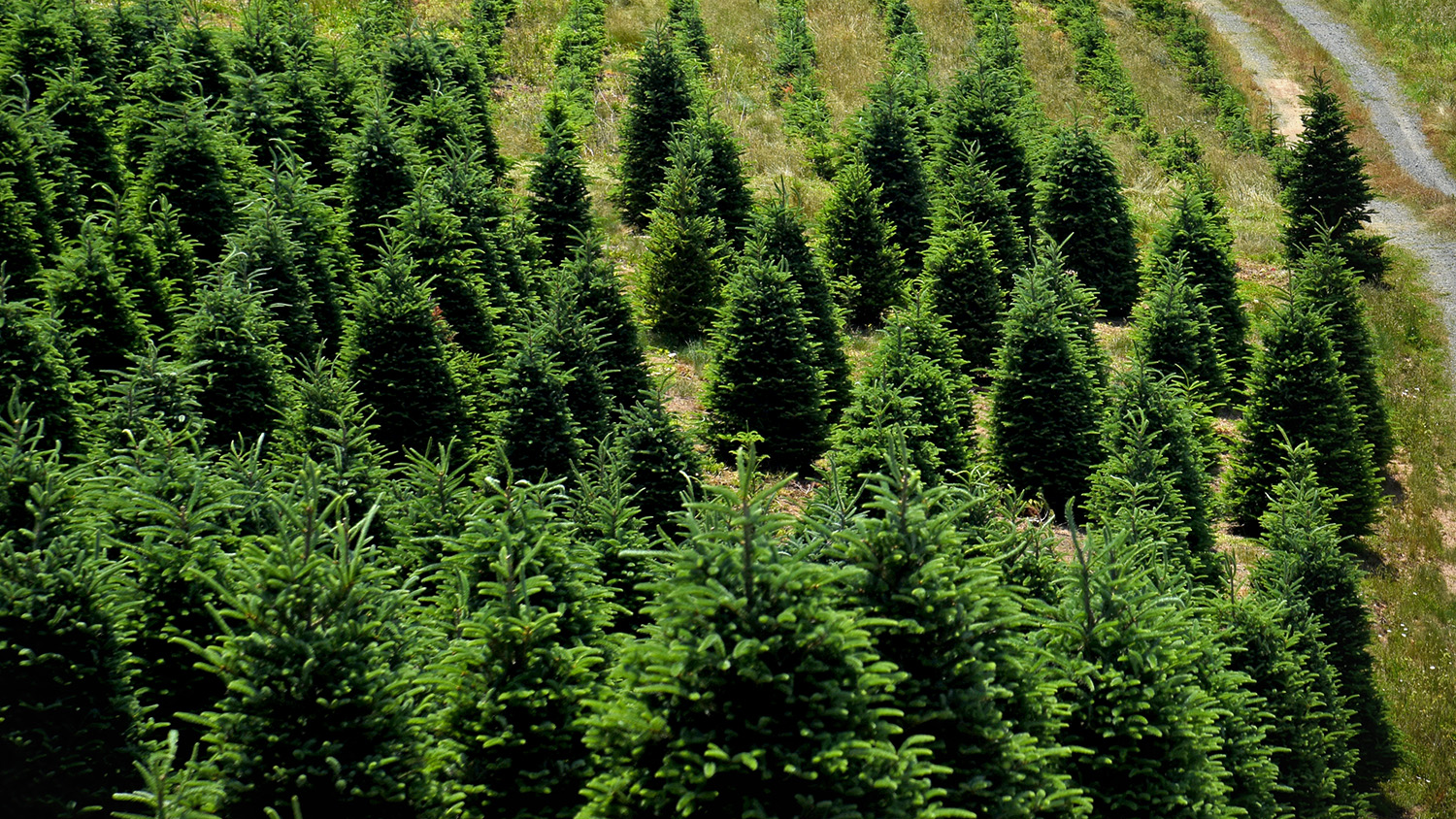Erin Apple graduated with a degree in fisheries, wildlife and conservation biology in 2013. During her time at NC State, she discovered her love for environmental education and went on to complete her NC Environmental Educator Certification in 2016.
We recently spoke with Apple to learn more about her current role as coordinator of youth programs for the North Carolina Museum of Natural Sciences. Check it out below.
What is a typical day in your job like, and what is your favorite aspect of your job?
I get to design and lead educational programs and experiences for middle and high school audiences. The programs I manage alongside other wonderful teen programs educators include Girls in Science classes and camps, Junior Curators, Junior Interpreters, Teen Science Cafes and Cafe Coordinators, Teen Climate Ambassadors and more.
A typical day involves designing lessons, leading programs, supervising teen volunteers, working on grant proposals for new projects, traveling with groups of students across the state, country and even internationally, and much more. I’m lucky enough to be able to use my natural resource background to help lead prescribed burns at the Prairie Ridge Eco-Station and am currently assisting with the development of new educational fire curriculum for the museum.
How do the programs you create impact your community?
I truly believe that celebrating diversity and increasing public science literacy and appreciation for the natural world is key to conservation efforts and future climate resilience; as an environmental educator, I work to change public perceptions. I feel lucky to work for an institution that values diversity, equity, accessibility and inclusion. I’m able to not only lead a full calendar of public programs, but to also look for ways to engage underserved audiences in all of our experiences.
Whether that’s through pursuing grant funding for scholarships and free-of-charge programs, managing outreach efforts directly into local schools, or actively identifying ways we can welcome students with disabilities into our programs, I really feel like our biggest impact is made by reaching teens from all parts of our local and statewide communities. Working with teens, all of our programs have a careers-in-science focus, and I work hard to connect students with inspirational STEM professionals and role models from all backgrounds, including people of color, LGBTQ+ scientists, persons with disabilities and more.
What led you to environmental education?
I honestly wasn’t aware that environmental education was a career option until my junior year in college. I got a seasonal job as an assistant park ranger at Jockey’s Ridge State Park in Nags Head, North Carolina and, along with park maintenance and natural resource management, was given the task of teaching educational programs. I never wanted to be a classroom teacher but found that I absolutely loved talking to visitors about wildlife, ecology and the things I was passionate about.
I loved being outdoors, leading groups on hikes, searching for animal tracks or teaching about park history from the top of the ridge at sunset. Best of all, I loved changing people’s perceptions about misunderstood wildlife, like snakes or sharks. Seeing fear turn to fascination and appreciation was so rewarding, and I remember thinking, “Wow…they pay people to do this for a living?”
How did the College of Natural Resources prepare you for the job you have now?
There are many people who joke that they never use their degree in their current job. I am not one of those people. The hard identification and ecology courses I completed through the wildlife program gave me the deep knowledge of southeastern ecosystems that I need in order to be a good educator and naturalist.
While I firmly believe that education is lifelong and I continue to attend workshops, conferences and seminars, the College of Natural Resources gave me the skills I needed to be competitive in this field. It’s my knowledge of natural resources and land management that allows me to participate in local prescribed burn efforts and to develop educational programming on fire ecology, a topic which is increasingly relevant today and, in my opinion, not discussed enough.
What’s the best piece of advice you could give to a current College of Natural Resources student?
I have two pieces of advice: First, volunteer as much as you can. Apply for internships and ask folks for job shadow opportunities. The Museum is in Raleigh, and we are a great resource for internships. I had to work a considerable number of internships and low-paid seasonal jobs to get the experience I needed for my permanent, full-time position with the state. Had I not started gathering this experience when I was in college, I would have had to complete that unpaid or low-paid work after graduation, which would have been a much bigger challenge personally and financially.
Second, if you are interested in environmental education as a career, there are many more resources within the College of Natural Resources today than when I was completing my degree — classes, clubs and ways to pursue your Environmental Educator Certification while still in school. Take advantage of all of them. I wish these fabulous resources had been available to me at the time.
- Categories:



